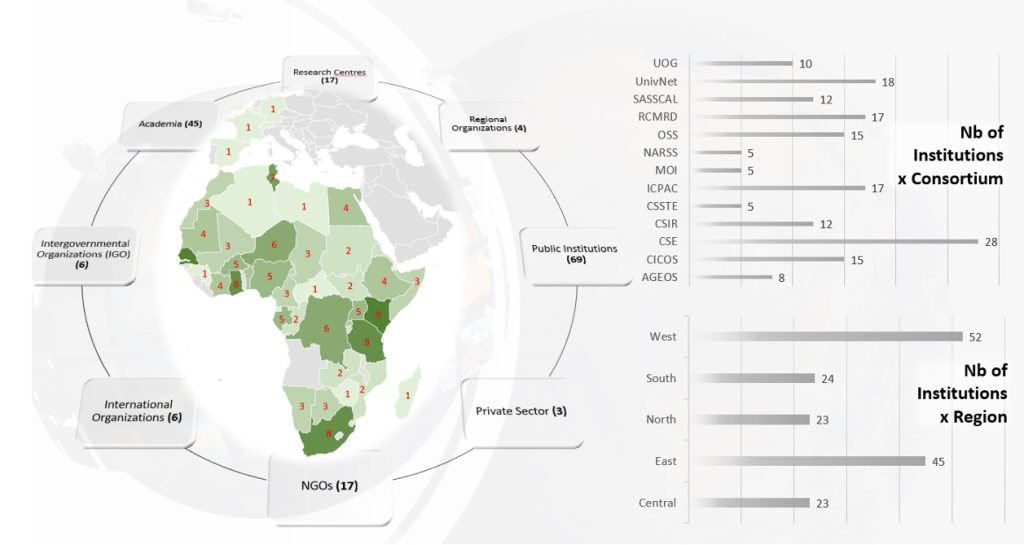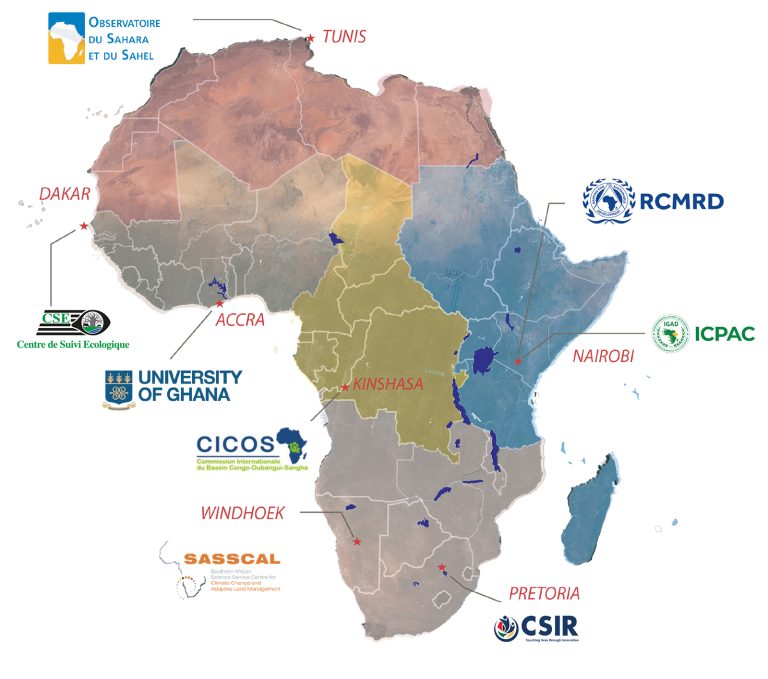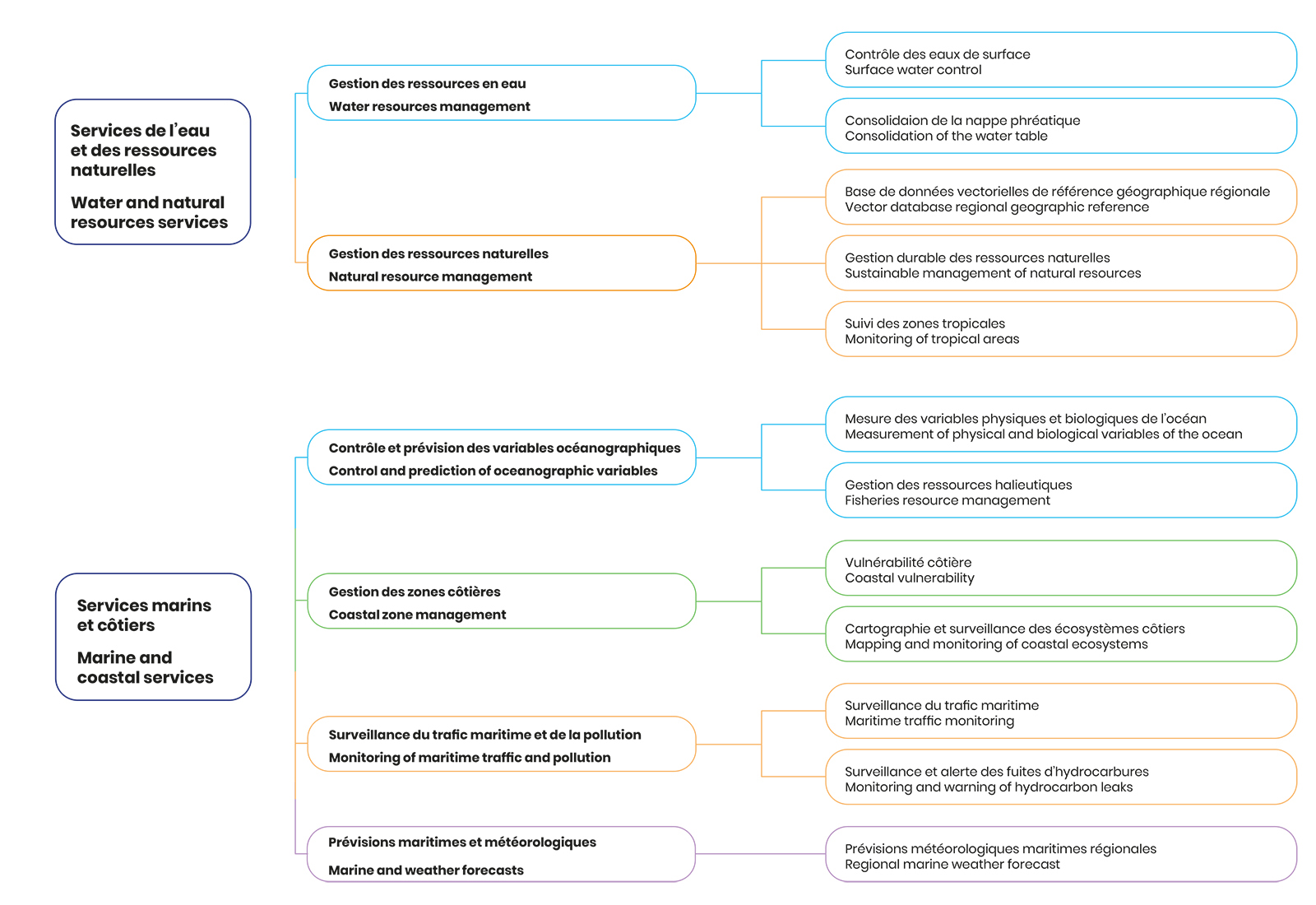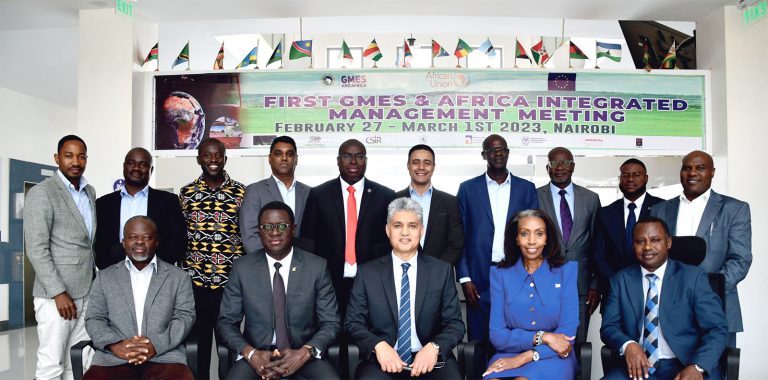Home » About GMES & AFRICA
About GMES & AFRICA

This initiative uses satellite data from the European COPERNICUS programme to assess and monitor the state of our natural resources, in particular water, vegetation, marine and coastal resources.
It aims to help African organisations, decision-makers and practitioners make more effective use of Earth observation data to develop relevant operational information services to support sustainable natural resource management and combat climate change.
In particular, GMES and Africa supports the value chain of information services on water and natural resources, marine and coastal areas, from access to information, through the generation and delivery of services, to the engagement and capacity of users to ensure the use of these services.

GMES and Africa is based on the consortium principle, which requires national institutions from five different countries and regional institutions to work together to implement a given thematic proposal. The consortium must also include the academic sector and users or beneficiaries. In this way, all the players work together from the design of the proposal through to its implementation. This kind of programme approach has produced incredible results over the last seven years, since the programme was set up.
The strategic approach of aligning the GMES & Africa programme with the objectives and priorities of Agenda 2063 and the African Union Commission’s ten-year implementation plans has allowed sustainability to be addressed and discussed from the outset of the initiative. The consortium principle, coupled with the financial contribution of the participating institutions to complement the grants received from the African Union Commission, has ensured ownership by policy and decision makers and has allowed the initiative to be integrated into the decision-making process of the partner institutions.
This has led to an extraordinary mobilisation. In fact, 170 institutions from 45 African countries and a network of more than 40 universities are taking part. The choice of regional themes or issues has helped to consolidate this mobilisation, as it enshrines the contribution of all, by all and for all. This contributes to regional and continental integration and peace-building, as actors from different countries rub shoulders, get to know each other and build fraternal relationships.

Synergies of action, cross-fertilisation and sharing of infrastructure, data and knowledge have become the systematic modus operandi. More than 20 private companies are involved, transforming knowledge into services, contributing to innovation and the development of the African space market, which in turn will help these companies to survive and operate more sustainably.
More than 10,000 experts and students from over 200 African institutions have been trained through GMES & Africa, forming the largest and densest network of Earth observation graduates in Africa. These young graduates form the basis of the critical mass of human capital Africa needs to combat environmental degradation and adapt to climate change and variability.
Specificities of the GMES & Africa initiative
Unlike previous Earth observation programmes in Africa, GMES & Africa introduces five major innovations:
- The inclusion of North African countries;
- The full responsibility of the African Union Commission for the management of the programme;
- The involvement of the African private sector;
- The involvement of African universities;
- The use of data from Copernicus services and Sentinel products.
Geographical coverage
GMES & Africa is a pan-African programme, unlike its predecessors such as AMESD and MESA, which operated in sub-Saharan Africa; North Africa does not benefit. This arrangement facilitates the ‘continentalisation’ of GMES & Africa services, allows for an equitable distribution of resources, and strengthens EO capacity and cooperation across the continent.
Consortia
To date, the programme is implemented by eight consortia of institutions representing the eastern, western, northern, southern and central regions of the African continent..

Areas of Activity

Our Services


Contact us
African Union Commission
Department of Education, Science, Technology and Innovation (ESTI)
P.O.Box 3243 – Roosevelt Street, Addis Ababa, Ethiopia
Tel: (+251) 11 5517700
Email: gmes@africa-union.org

